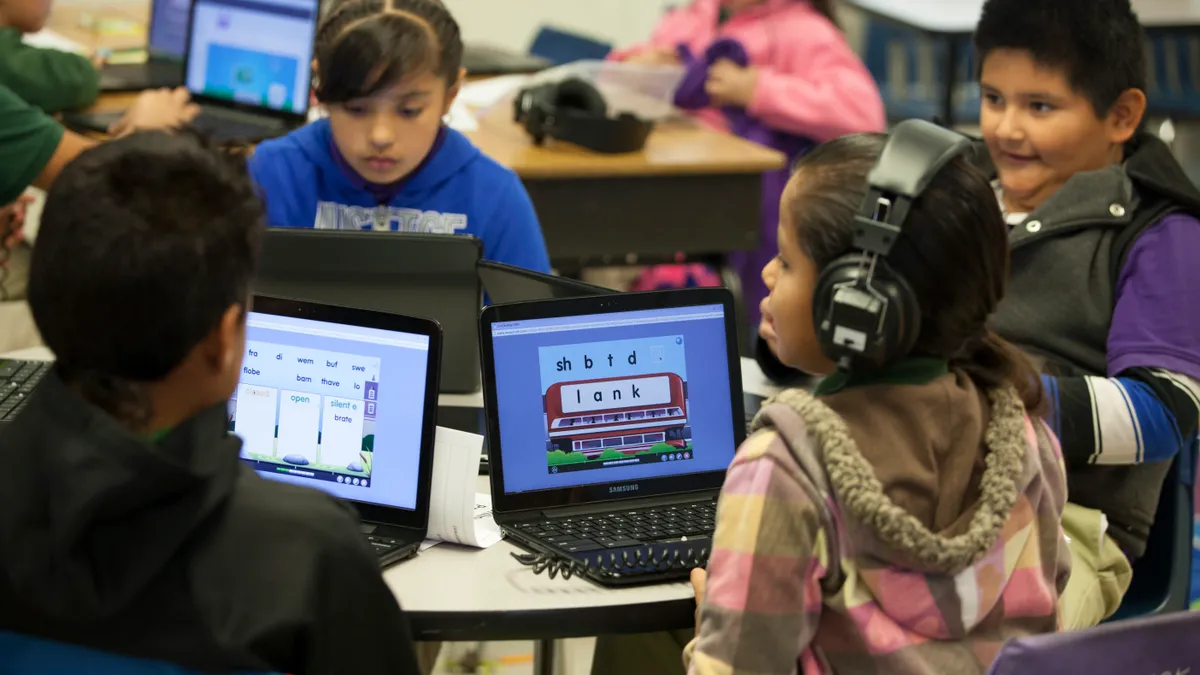Dive Brief:
- Though a 2016 grant report set a goal for the expansion of Summit Learning's technology platform and curriculum at roughly 50,000 schools — or half the public schools in the nation — by 2025, only about 400 are partnering to use the program this year, roughly the same as last year despite strong philanthropic support that includes $99 million from the Chan Zuckerberg Initiative alone, Chalkbeat reports.
- Though past reports show the original plan was to use marketing strategies to create enough demand to “scale personalized learning nationally” and prove the Summit charter network's approach works, the platform has been met with publicized protests by some parents and students, and 25% of schools that adopted the program before the 2018-19 school year are no longer using it.
- A recent report on the program's effectiveness also announced that students had gained, on average, a year’s worth of academic growth in math and reading but lacked details on overall school performance under the model, though it notes that the most effective use of the program has come at schools where parents have been “largely supportive” because of clear communication from the school.
Dive Insight:
Though it hasn't been able to create the expected demand or offer more robust details demonstrating its effectiveness, Summit Learning continues to offer its platform free to interested schools — thought it does now require partner schools to implement all components of the program rather than adopting a piecemeal approach.
Summit's struggles illustrate the problems many educational change initiatives face in the beginning. Roadblocks to gaining acceptance, implementing the tools and demonstrating results are common, and they way these issues are handled often make the difference between failures and success.
Opposition from parents and students has largely centered around the platform's technology-based approach to learning. A New York Times article, for example, reported a rebellion among parents in Kansas over concerns about screen-time's impact on the health of their children. While that coverage was later questioned, others have noted the irony of a Silicon Valley-based approach being promoted by Zuckerberg and others when so many Silicon Valley parents are opting to raise their own children tech-free.
Beyond screen-time, parents have also cited privacy concerns over data as a result of a perceived link between Summit Learning and Facebook, though a spokesperson for Summit Learning clarified that no data links between the two organizations exist.
Student complaints about the program have included those from Brooklyn's Secondary School for Journalism, regarding a lack of rigor and organization, poor implementation, and lack of teacher training for proper use. Though teacher residency training exists in the Summit Public Schools charter network, others adopting the platform and approach do not have a consistent training model.
Because of the uneven way the program has been implemented in schools using Summit Learning and the varying definition of success in these schools, examining its impact thus far has been difficult. Summit Learning is now requiring a more consistent approach to implementing its core ideals, and as its last report notes, clear communication around the model is also key to building parental support and improving success.
This is true of any change initiative. As Seen Magazine noted about acceptance of the Common Core in some schools, those that "practiced parental involvement will also garner support more easily for these changes because parents are included in decisions, know what’s going to happen, have input, and aren’t surprised by what is occurring."











